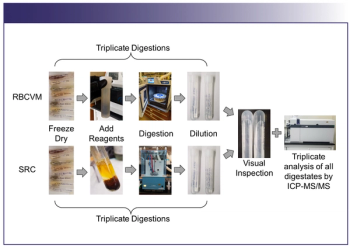
National Cancer Institute Awards Labcyte $1 Million for Novel High-Throughput Cancer Biomarker Detection
Labcyte, Inc. (Sunnyvale, California), an acoustic dispensing company, has been awarded $1 million to create an innovative process to detect cancer-related proteins in samples, with initial work in breast cancer detection.
Labcyte, Inc. (Sunnyvale, California), an acoustic dispensing company, has been awarded $1 million to create an innovative process to detect cancer-related proteins in samples, with initial work in breast cancer detection.
Labcyte’s acoustic liquid handling enables biomarker detection by measuring multiple proteins with a MALDI mass spectrometer. Recent work with the Canary Center at Stanford (Palo Alto, California), also supported by the National Cancer Institute, showed the ability to achieve the sensitivity required for quantifying very small amounts of proteins associated with ovarian cancer. Measuring the amount of multiple proteins, and at lower cost, is an essential step in developing new diagnostic tools for disease treatment and monitoring.
“I am particularly enthusiastic about participating with Labcyte on the further development of their protein multiplexed biomarker detection platform,” Dr. Mark Stolowitz, director of the Proteomics Core Facility at the Canary Center at Stanford for Cancer Early Detection said in a statement. “This novel immunoaffinity mass spectrometry based approach exploits MALDI-TOF-MS for detection of proteotypic peptides. The platform affords sensitivity comparable to that of triple-quad mass spectrometers while providing significantly greater throughput and better precision than that obtainable from LC-MS-MS based approaches. Over the next few years, the Labcyte platform should provide the high throughput biomarker verification/validation solution that researchers have sought in conjunction with the emergence of clinical proteomics.”
In addition to working with the Canary Center, the Labcyte project includes collaboration with the Fred Hutchinson Cancer Research Center in Seattle, Washington.
Newsletter
Get essential updates on the latest spectroscopy technologies, regulatory standards, and best practices—subscribe today to Spectroscopy.




